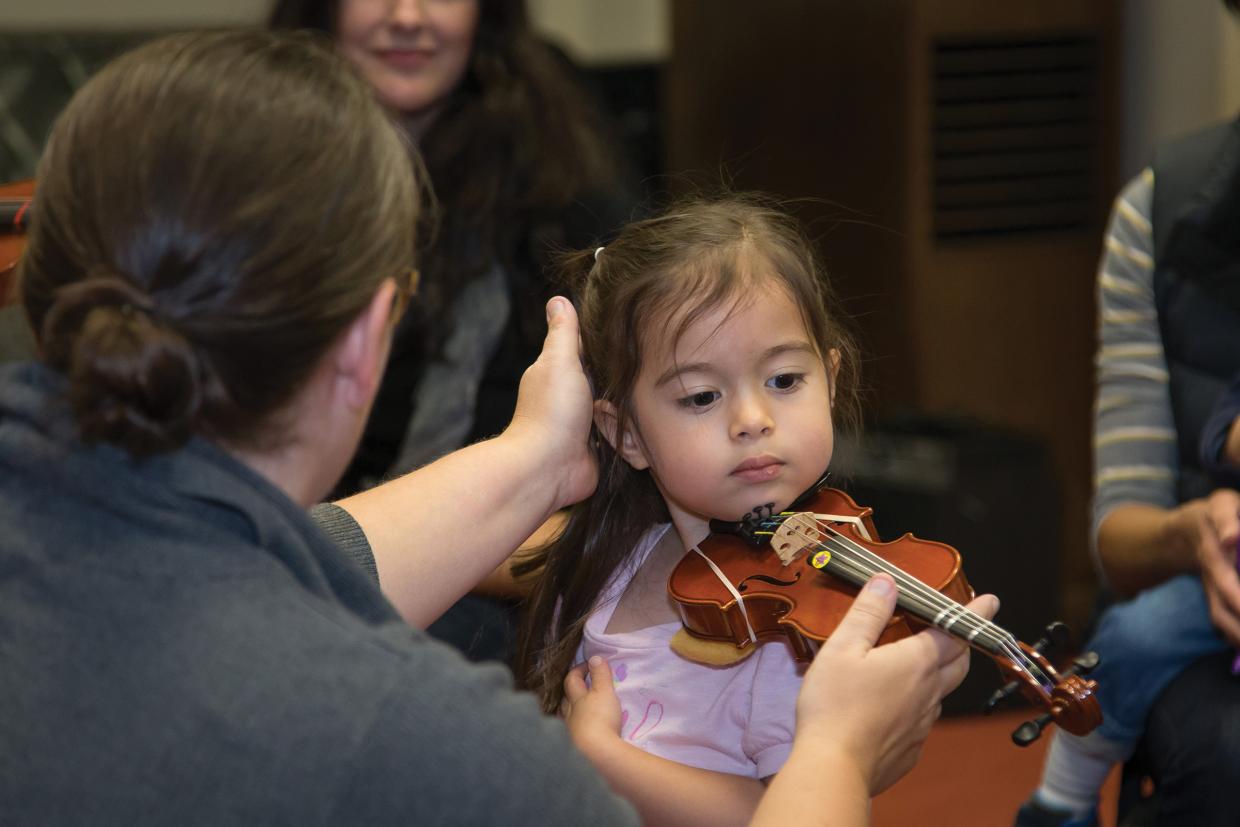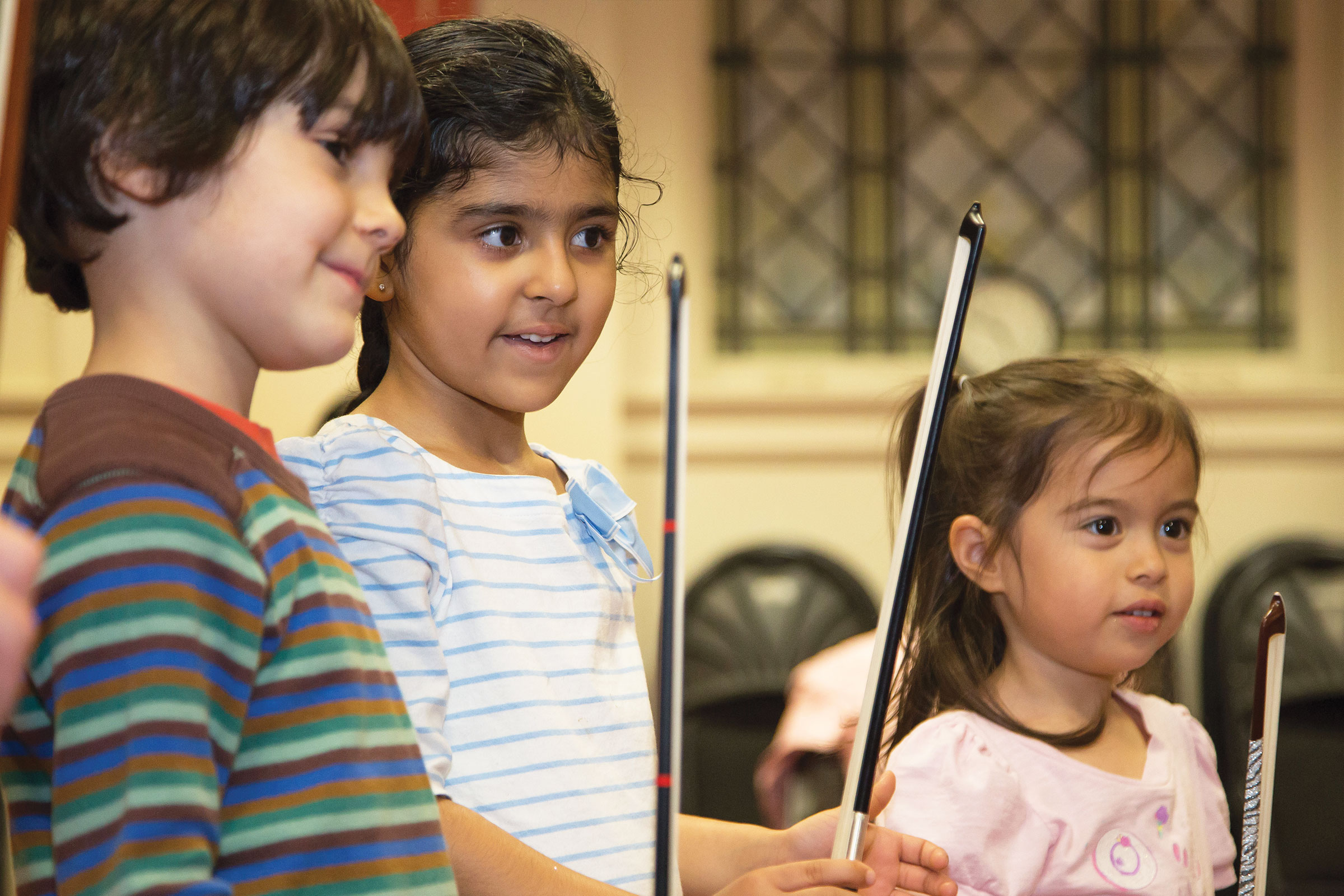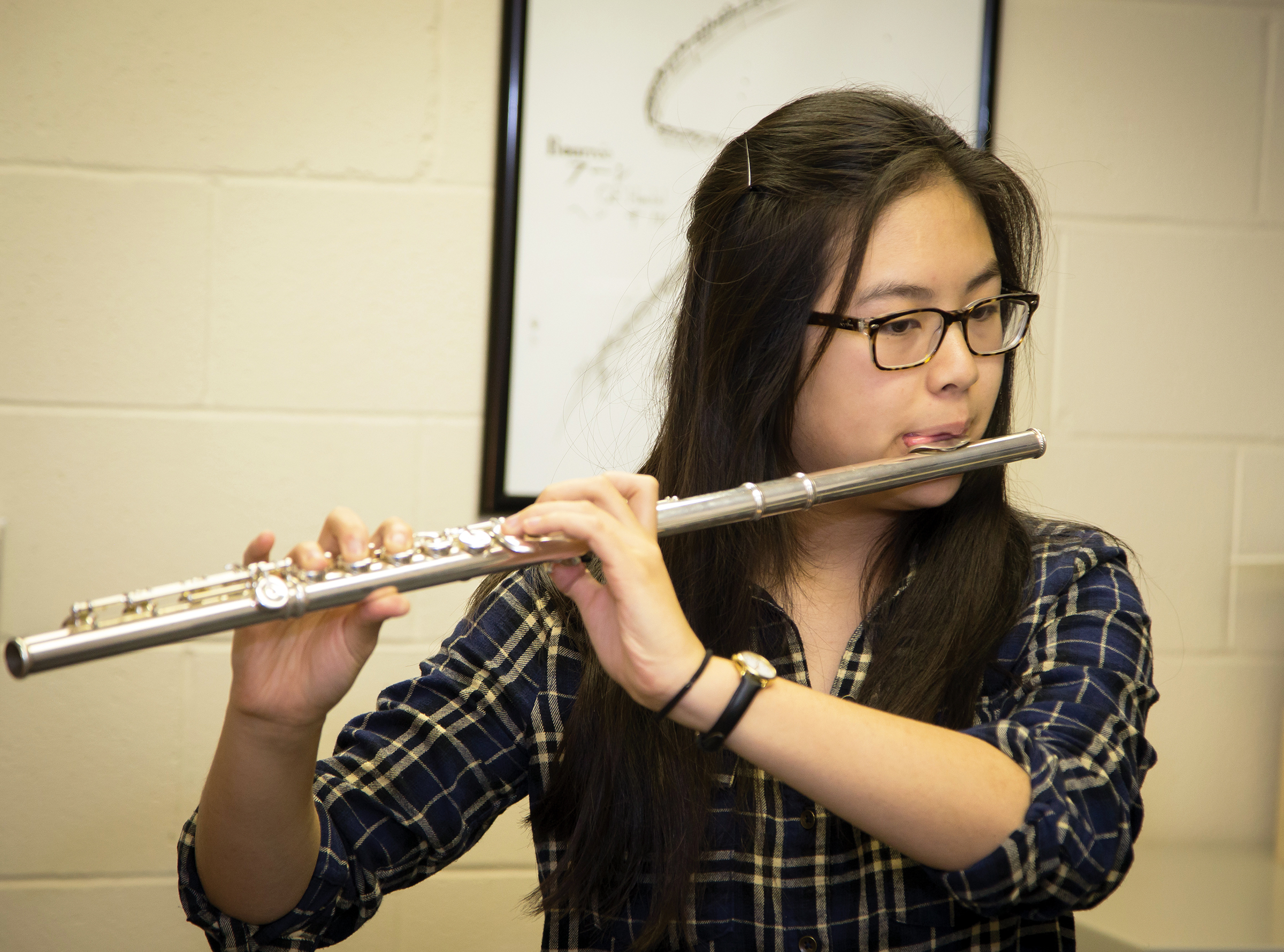How to choose the right music lessons for you: Suzuki and Traditional lessons

August 6th, 2024
Choosing a teaching method that fits your goals can make all the difference in your musical journey. Here at the Music Institute of Chicago, we understand the importance of finding the perfect fit. That's why we offer both Suzuki and Traditional music lessons for a variety of instruments.
What are your goals?
Before jumping into lessons, it's important to consider what kind of learning environment you are looking for, where your starting point is, how much time you would like to dedicate. Both Suzuki and Traditional methods can be incredibly fun and engaging!
Choosing Your Path: Suzuki and Traditional Lessons
We understand that every student learns differently, and choosing the type of lessons that suits your needs can be difficult on your own. Both methods have similarities and aspects that crossover, but there are some differences. Let's break down the key components of each method to help you find the perfect fit!
Suzuki Method:
The goals of the Suzuki Method are to enrich the lives of children by playing a musical instrument and to give each child the satisfaction that comes from the ability to do something well.
- Inspired by language learning: Suzuki method is based on the idea that music can be learned like a language, through listening and repetition.
- Parental involvement is key: Parents attend lessons, classes, and practice with their child, creating a supportive learning environment.
- Early Start: Learning music can begin as early as 3 or 4 years old, with an emphasis on listening from birth. The earlier you begin, the better, but Suzuki emphasizes that anyone can learn music at any age.
- Focus on listening: Consistent exposure to music is crucial, especially the pieces the child will learn to play.
- Learning with Others: In addition to private lessons, children participate in regular group classes, workshops, and performances at which they learn from and are motivated by each other.
- Reading Music: Just as we learn to speak before we learn to read, Suzuki students develop skills on their instrument before focusing on reading music notation. When students have reached a certain level of proficiency on their instrument, music reading is introduced and reinforced in weekly lessons.
While we only touched the surface of what the Suzuki method entails, for a more in-depth exploration, please refer to our dedicated section on Suzuki education:
Learn more about Suzuki Education
Traditional Lessons:
Like our Suzuki program, traditional lessons boast experienced, passionate instructors. Both paths offer a fantastic start, with some overlap. The curriculum of traditional lessons at MIC varies from student to student and teacher to teacher, depending on a number of factors.
Here are some highlights about traditional lessons at MIC:
- Tailored Curriculum: Our instructors tailor lessons to your individual goals and learning style.
- Diverse Repertoire: Explore a variety of musical styles and choose from a diverse repertoire that reflects your musical tastes.
- Parental Involvement: Parental involvement depends on personal preferences and can be worked out collaboratively with the teacher.
- Start Anytime: Traditional lessons welcome students of all ages, including youth and adult learners.
- Reading Music: Develop your music reading skills by learning to read music from the beginning.
Learn more about traditional private lessons
Ultimately, the best way to choose is to explore both options! MIC offers free placement meetings where you can discuss your musical goals and learning style with one of our campus directors. Campus Directors will take time to learn about your personality, learning style, interests and goals so that the best student-teacher match may be arranged. In addition, we will answer all your questions and provide more information about our offerings and school policies.
Ready to take the next step?
Fill out our quick and easy inquiry form and a friendly member of our team will contact you to schedule your free placement meeting.


